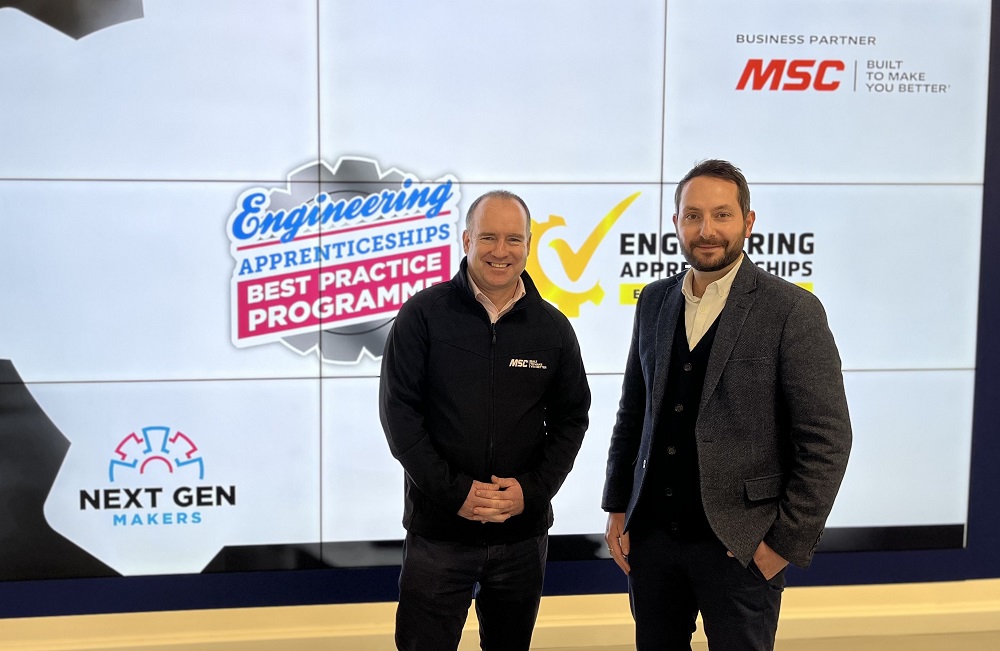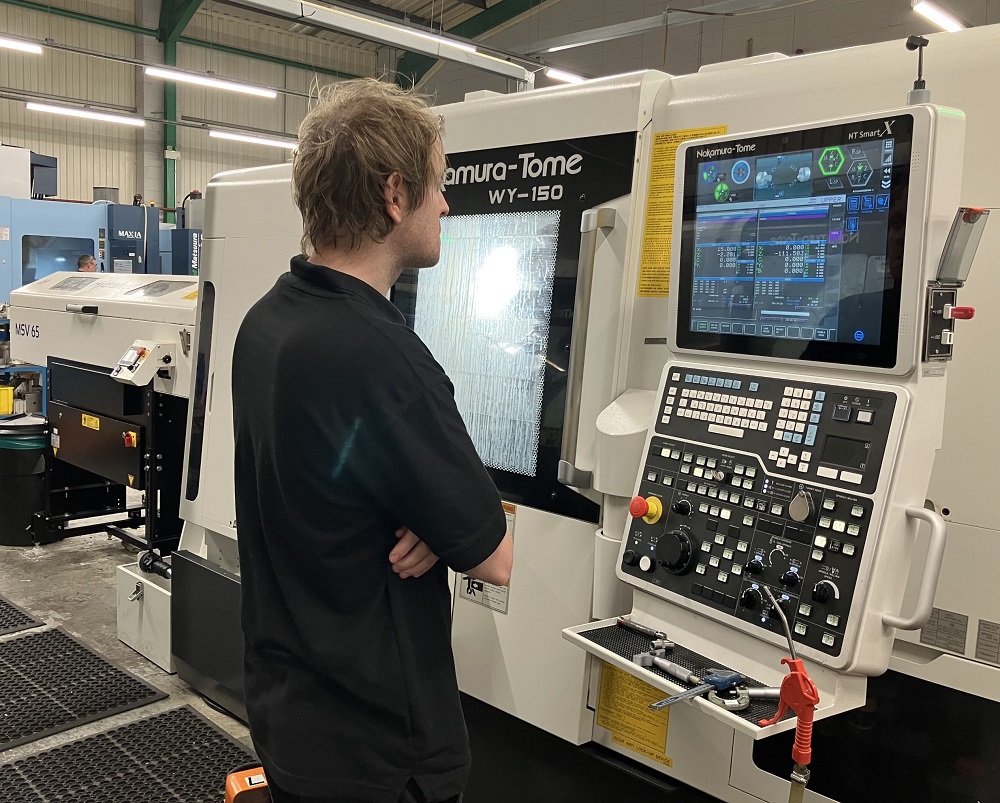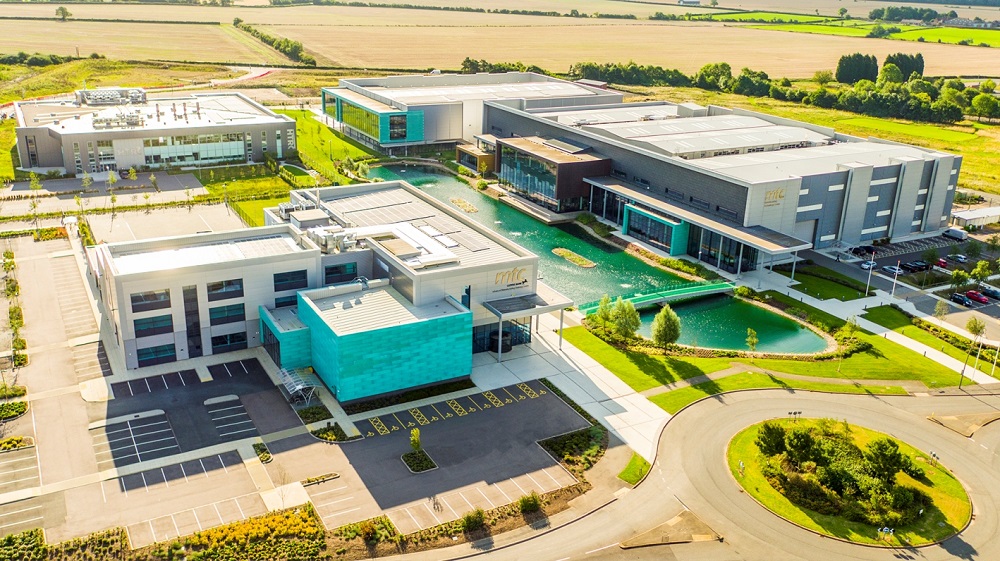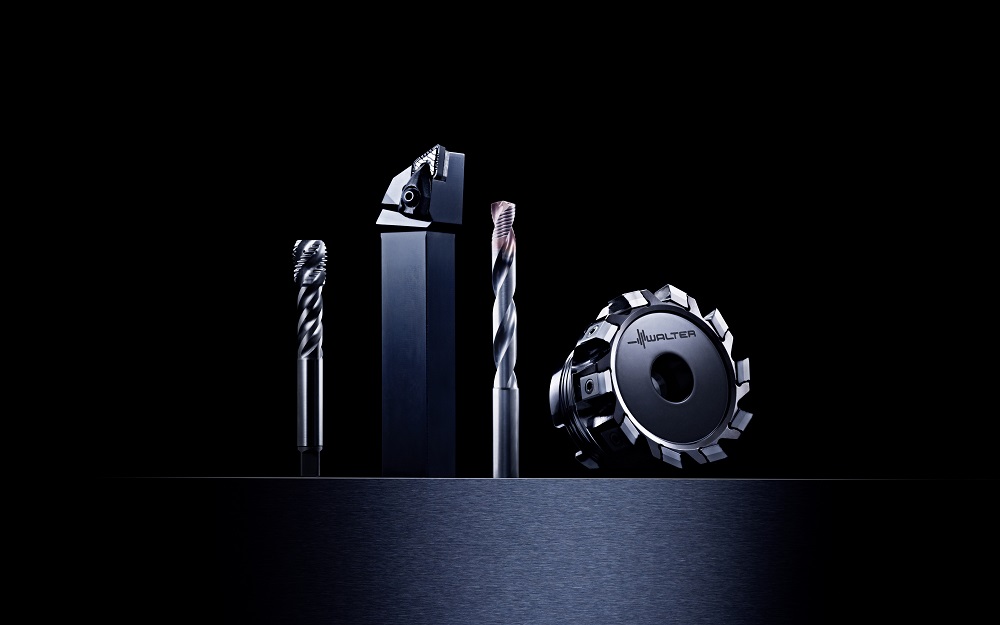When Medley Precision won a contract to produce fire suppression assembly systems, the Mansfield-based subcontract manufacturer was initially producing the parts on a single spindle turning centre. However, as the required quantities quickly escalated, the company sought a better solution, turning for help to the Engineering Technology Group (ETG) and the Nakamura-Tome brand.
Like many subcontract manufacturers, Medley has a plant list of high-end machine tools that epitomises the quality demanded by its equally prestigious customers in the offshore, power generation, rail, medical, aerospace and defence sectors. With the aluminium fire mist nozzle systems consisting of a family of four components, the initial requirement was for 200 parts (x4) per month – a volume sustainable for the existing turning centre. However, the volume rapidly exploded from a total of 800 parts to 6000 (1500-off x4) and a solution was needed urgently.
Medley Precision’sproduction manager Stuart Solomon recalls: “The volume rapidly expanded and we looked at a sliding-head lathe, but one of the parts in the assembly was over 50mm diameter – beyond the realm of a slider. We then looked at a range of other manufacturers, but it was the pedigree, quality and the price-to-performance ratio of the Nakamura-Tome brand that sold it to us.”
The AS9100-certified Nottinghamshirecompany purchased a twin-spindle, twin-turret Nakamura-Tome WT15II turning centre at the start of the Covid-19 pandemic to cruise through the 6000 part per month order.
“For us, having the facility for one-hit, ‘lights-out’ machining via a barfed turning centre was crucial to our investment decision,” says Solomon.“Moving from a chucking single-spindle lathe to the Nakamura WT150II was a complete revelation. On the four parts, we more than halved the cycle times. The cycle time for the aluminium nozzle body was cut from 14 minutes to 6, while the time for the other three parts were cut from 8, 6 and 4 minutes, to 4, 3 and 2 minutes respectively. But this wasn’t just about cycle time improvements, we wanted to create a stable and efficient process.”
The results were immediately evident. Medley went from one operator permanently located on the single-spindle lathe to one operator on two machines. The quality and consistency of the parts improved vastly, as did the surface finishes. Notably, the same Nakamura stability that improved surface finishes and consistency also prolonged tool life significantly with operational costs falling sharply.
“With the cycle time savings, we could also introduce a deburring cycle for each part and still be more than 50% faster than before,” explains Solomon.“The deburring cycle eliminated the need for the parts to be put through a post-machining rumbler. Our operator would put 200 parts per hour into the rumbler for deburring while running a single-spindle machine full-time. Not only have we eradicated this additional process, but our consumable costs and the energy efficiency of running one machine instead of two is evident.”
With the first Nakamura-Tome WT150II proving such a success for Medley, the company once again turned to ETG when the order books in the turned parts department continued to bulge.
Says Solomon: “With the first Nakamura dedicated to 24 hour, five days a week production of the fire-suppression system, we were noticing our remaining single and twin-spindle turning centres were increasingly close to hitting full capacity – we needed another Nakamura.”
The manufacturer was witnessing a surge in rail work with an increasing demand for fuel systems and associated parts for trains in batches of 100+, as well as an increase in high-value oil and gas exploration parts such as flow regulators and pins in varying quantities from 20 to 150+ parts. Medley specified the Nakamura WY150F, a turning centre with a larger footprint and work area than the WT150II – a footprint that accommodates Y-axis cutting on both the upper and lower turrets.
“The Nakamura WY150F is a slightly larger machine than the WT150II, but it offers additional capabilities,” says Solomon.“The machine was only commissioned recently and we are already seeing the benefits. We swapped the single-spindle machine out and replaced it with the WY150F, as the single-spindle machine no longer meets our profile for a turned parts machine. Although we can acknowledge that the single-spindle turning centre is no match for a twin-spindle Nakamura in productivity terms, we are realising the true value of the Nakamura WY150F, as we are now transferring parts from our other twin-spindle turning centre.”
He continues: “We’ve just moved a part from our other twin-spindle machine to the Nakamura WY150F, cutting the cycle time from 15 minutes to less than 8 on a brass component for the rail industry. This cycle time saving is achievable by hitting both sides of the part at the same time, by using the upper tooling turret on the main spindle and simultaneously hitting the back end of the part in the sub-spindle with the lower tooling turret. By identifying this saving, we will be gradually moving more of our volume components to the new Nakamura and transferring our lower batch quantity work to the single-turret turning centre. Another factor that is making the Nakamura perform so well is the impressive technology and software within the control panel, as well as the Hainbuch work-holding system.”
With the first Nakamura WT150II turning centre dedicated to producing a family of fire-suppression components and the second Nakamura WY150F rapidly churning its way through capacity for Medley, the reduced lead times and improved component quality is bringing more work to the subcontract manufacturer.
For further information www.engtechgroup.com


















